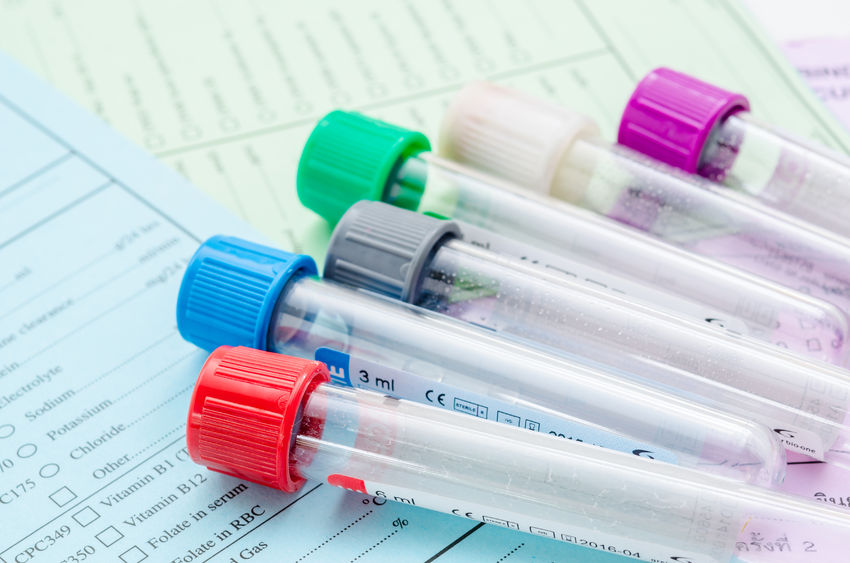
Restrictive Cardiomyopathy Genetic Testing Genotyping Blood
What is this test?
Restrictive cardiomyopathy (RCM) is a rare form of heart muscle disease that is characterized by restrictive filling of the ventricles. In this disease the contractile function (squeeze) of the heart and wall thicknesses are usually normal, but the relaxation or filling phase of the heart is very abnormal. The cardiomyopathies are a group of disorders characterized by disease of the heart muscle. Cardiomyopathies are often caused by inherited, genetic, factors. When the identified structural or functional abnormality observed in a patient cannot be explained by acquired causes, genetic testing is commonly employed to identify a genetic underpinning. Overall, the cardiomyopathies are some of the most common genetic disorders. The inherited forms of cardiomyopathy include hypertrophic cardiomyopathy (HCM), dilated cardiomyopathy (DCM), arrhythmogenic cardiomyopathy (ARVC or AC), and left ventricular noncompaction (LVNC). HCM is characterized by left ventricular hypertrophy in the absence of other causes, such as structural abnormalities, systemic hypertension, or physiologic hypertrophy due to rigorous athletic training (so-called "athlete's heart"). The incidence of HCM in the general population is approximately 1 in 500, and is most often caused by mutations in genes encoding the components of the cardiac sarcomere. The clinical presentation of HCM can be variable, even within the same family. HCM can be asymptomatic in some individuals who harbor pathogenic HCM-associated variants, but can cause life-threatening arrhythmias that increase the risk of sudden cardiac death in other individuals. DCM is established by the presence of left ventricular enlargement and systolic dysfunction. DCM may present with heart failure with symptoms of congestion, arrhythmias or conduction system disease, or thromboembolic disease (stroke). Arrhythmogenic cardiomyopathy (also referred to as arrhythmogenic right ventricular cardiomyopathy/dyplasia)(ARVD or AC) is characterized by replacement of the muscle tissue with fibrofatty tissue, resulting in an increased risk of arrhythmia and sudden death. Age of onset and severity are variable, but symptoms typically develop in adulthood. LVNC is characterized by left ventricular hypertrophy and prominent trabeculations of the ventricular wall, giving a spongy appearance to the muscle wall. It is thought to be caused by the arrest of normal myocardial morphogenesis. Clinical presentation is highly variable, ranging from no symptoms to congestive heart failure and life-threatening arrhythmias. Restrictive cardiomyopathy (RCM) is the rarest form of cardiomyopathy and is associated with abnormally rigid ventricular walls. Systolic function can be normal or near normal, but diastolic dysfunction is present. There are several nongenetic causes of RCM, but this condition can be familial as well, with the TNNI3 gene accounting for the majority of inherited cases. The age at presentation for familial RCM ranges from childhood to adulthood, and there is an increased risk of sudden death associated with this condition. Noonan syndrome is an autosomal dominant disorder of variable expressivity characterized by short stature, congenital heart defects, and characteristic facial dysmorphology. HCM is present in approximately 20% to 30% of individuals affected with Noonan syndrome. There are a number of disorders with significant phenotypic overlap with Noonan syndrome, including Costello syndrome, cardiofaciocutaneous (CFC) syndrome, and multiple lentigines syndrome (formerly called LEOPARD syndrome). Noonan syndrome and related disorders (also called the RASopathies) are caused by mutations in genes involved in the RAS-MAPK signaling pathway. Cardiomyopathy may also be caused by an underlying disease such as a mitochondrial disorder, a muscular dystrophy, or a metabolic storage disorder. In these cases, heart disease may be the first feature to come to attention clinically. The hereditary forms of cardiomyopathy are most frequently associated with an autosomal dominant form of inheritance, however X-linked and autosomal recessive forms of disease are also present. In some cases, compound heterozygous or homozygous mutations may be present in genes typically associated with autosomal dominant inheritance, often leading to a more severe phenotype. Digenic mutations (2 different heterozygous mutations at separate genetic loci) in autosomal dominant genes have also been reported to occur in patients with severe disease (particularly HCM and ARVC). The inherited cardiomyopathies display both allelic and locus heterogeneity, whereby a single gene may cause different forms of cardiomyopathy (allelic heterogeneity) and mutations in different genes can cause the same form of cardiomyopathy (locus heterogeneity).This comprehensive cardiomyopathy panel includes sequence analysis of 55 genes and may be considered for individuals with HCM, DCM, AC, or LVNC, whom have had uninformative test results from a more targeted, disease-specific test. This test may also be helpful when the clinical diagnosis is not clear, or when there is more than 1 form of cardiomyopathy in the family history. It is important to note that the number of variants of uncertain significance detected by this panel may be higher than for the disease-specific panels, making clinical correlation more difficult.
Also known as Restrictive Cardiomyopathy Genetic Testing.
Test Preparation
No special preparation is needed for Restrictive Cardiomyopathy Genetic Testing Genotyping Blood. Inform your doctor if you are on any medications or have any underlying medical conditions or allergies before undergoing Restrictive Cardiomyopathy Genetic Testing Genotyping Blood. Your doctor depending on your condition will give specific instructions.
Understanding your test results
| Gender | Age groups | Value |
| UNISEX | All age groups | Gene is mutated in positive cases |
| UNISEX | All age groups | Gene is mutated in positive cases |
| UNISEX | All age groups | Gene is mutated in positive cases |
| UNISEX | All age groups | Gene is mutated in positive cases |
| UNISEX | All age groups | Gene is mutated in positive cases |

